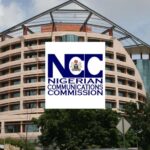Information and Technology experts said the internet can provide a lot of benefits like serving as a source of information, online education, research, commerce, communication and as a key driver for innovation.
But the internet equally provides content that users would find objectionable and would not want themselves, their children, or even society at large, exposed to.
- Mother demands autopsy report, 2 months after daughter raped to death
- Traders count losses after Sokoto market inferno
While an open internet is important for driving innovation, there are several factors to be considered in its promotion, such as privacy and data protection, child online protection, objectionable content, unsolicited communications, and traffic management practices that are considered necessary in order to maintain network efficiency. To this end, Nigeria came up with the Internet Code of Practice to define the rights and obligations of Internet Access Service Providers.
The specific objectives of the Code, according to the Nigerian Communications Commission (NCC), are to: protect the right of Internet users to an Open Internet; provide clear guidelines to Internet Access Service Providers on the use of traffic management practices.
Others are to outline the obligations of Internet Access Service Providers in relation to the protection of consumers’ personal data; and outline the obligations of Internet Access Service Providers in the handling of offensive and potentially harmful content, and the protection of minors and vulnerable audiences online and ensure adequate safeguards are put in place by Internet Access Service Providers against unsolicited Internet communications.
Transparency
The code says an Internet Access Service Provider shall disclose on its website and in all service agreements, full and accurate information regarding the performance, technical and commercial terms of its Internet Access Services in a manner sufficient for consumers and third-party content providers to make informed choices regarding their use of such services.
The NCC further says any traffic management practices employed by an Internet Access Service Provider for the purposes of network optimization shall be fully publicly disclosed, including: the specific reason(s) why the traffic management practices are required; the specific goal(s) of the practices implemented; the manner in, and the extent to which those practices may affect the Internet Access Services.
No discrimination
Another important aspects of the code is the provision that says an Internet Access Service Provider shall treat all lawful traffic within the same service category equally, without discrimination, restriction or interference, irrespective of the sender and receiver, the content accessed or distributed, the applications or services used or provided, or the terminal equipment used.
No blocking
“An Internet Access Service Provider shall not block any lawful content, applications, services, or non-harmful devices, with the exception of reasonable network management” , the code says.
No throttling
It further says an Internet Access Service Provider shall not impair or degrade lawful internet traffic on the basis of internet content, source, destination, application, or service, or use of a non-harmful device, with the exception of reasonable network management.
No preferential data prioritization
There shall not engage in preferential data prioritization under any circumstances. And Zero-rating may be permissible to the extent that it furthers the objectives of the Act.
Privacy and Data Protection Obligations
The NCC code says an Internet Access Service Provider shall comply with the provisions of Nigeria’s data protection regulations.
Data Security
It also provides that an Internet Access Service Provider shall take reasonable measures to protect customer information from unauthorized use, disclosure, or access.
“The security measures taken by an Internet Access Service Provider to implement the requirement set forth in this section shall appropriately take into account each of the following factors; the sensitivity of the data collected; and technical feasibility.
Child Online Protection
NCC said an Internet Access Service Provider should include in its Terms and Conditions of Service, a clear set of rules for the use of the Service that complies with the Cybercrime Act 2015, Child Online Protection Policy and all other applicable laws and regulations. The Terms and Conditions shall be published prominently on the Internet Access Service Provider’s website and on all service agreements, either electronic or otherwise.
Reporting Mechanism for Child Sex Abuse Content
It says an Internet Access Service Provider shall provide clear and adequate directions to its customers for reporting child sexual abuse content to the Commission.
Blocking of Access to Child Sexual Abuse Content
“An Internet Access Service Provider shall have measures in place for the immediate blocking of access to child sexual abuse content, once notified by the Commission”, it says.
Parental Control Measures
There is also a provision for Optional Parental Control Measures (PCMs), such as content filters, usage monitoring tools, and usage control tools.
This, it says, will be offered either directly to customers or via the provision of information in a reasonably prominent position on the Internet Access Service Provider’s website regarding third party websites that provide a means for consumers to have access to or acquire parental control tools.

 Join Daily Trust WhatsApp Community For Quick Access To News and Happenings Around You.
Join Daily Trust WhatsApp Community For Quick Access To News and Happenings Around You.


